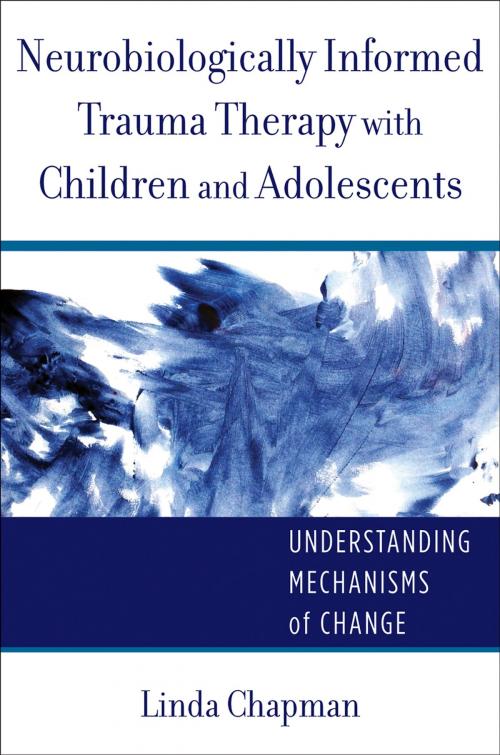Neurobiologically Informed Trauma Therapy with Children and Adolescents: Understanding Mechanisms of Change (Norton Series on Interpersonal Neurobiology)
Nonfiction, Health & Well Being, Psychology, Counselling| Author: | Linda Chapman | ISBN: | 9780393709124 |
| Publisher: | W. W. Norton & Company | Publication: | January 20, 2014 |
| Imprint: | W. W. Norton & Company | Language: | English |
| Author: | Linda Chapman |
| ISBN: | 9780393709124 |
| Publisher: | W. W. Norton & Company |
| Publication: | January 20, 2014 |
| Imprint: | W. W. Norton & Company |
| Language: | English |
Nonverbal interactions are applied to trauma treatment for more effective results.
The model of treatment developed here is grounded in the physical, psychological, and cognitive reactions children have to traumatic experiences and the consequences of those experiences. The approach to treatment utilizes the integrative capacity of the brain to create a self, foster insight, and produce change. Treatment strategies are based on cutting-edge understanding of neurobiology, the development of the brain, and the storage and retrieval of traumatic memory. Case vignettes illustrate specific examples of the reactions of children, families, and teens to acute and repeated exposure to traumatic events.
Also presented is the most recent knowledge of the role of the right hemisphere (RH) in development and therapy. Right brain communication, and how to recognize the non-verbal symbolic and unconscious, affective processes will be explained, along with examples of how the therapist can utilize art making, media, tools, and self to engage in a two-person biology.
Nonverbal interactions are applied to trauma treatment for more effective results.
The model of treatment developed here is grounded in the physical, psychological, and cognitive reactions children have to traumatic experiences and the consequences of those experiences. The approach to treatment utilizes the integrative capacity of the brain to create a self, foster insight, and produce change. Treatment strategies are based on cutting-edge understanding of neurobiology, the development of the brain, and the storage and retrieval of traumatic memory. Case vignettes illustrate specific examples of the reactions of children, families, and teens to acute and repeated exposure to traumatic events.
Also presented is the most recent knowledge of the role of the right hemisphere (RH) in development and therapy. Right brain communication, and how to recognize the non-verbal symbolic and unconscious, affective processes will be explained, along with examples of how the therapist can utilize art making, media, tools, and self to engage in a two-person biology.















